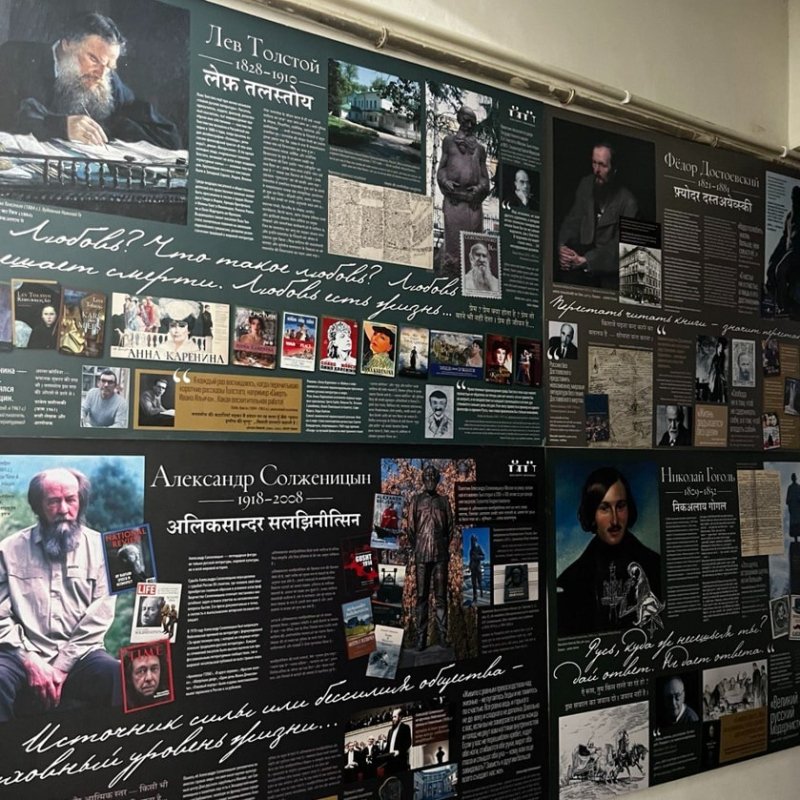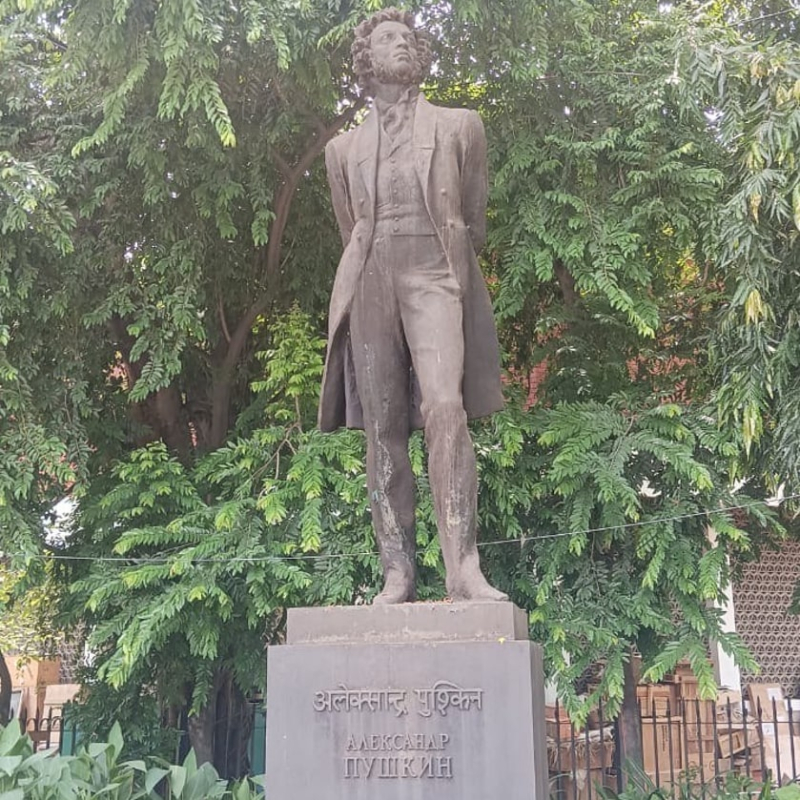Master's graduate, Business Transformation Strategies and Technologies
Exploring the Impact of Russian Poets, Authors and Artists on Indian Culture
The rich tapestry of Indian culture is woven with threads from around the world, reflecting centuries of exchange and influence. Among the many cultures that have left their mark on India, Russian literature holds a special place, resonating deeply with Indian intellectuals, artists, and readers alike. In this blog, we delve into the profound impact of Russian poets, authors and artists on Indian culture, examining both the academic and artistic dimensions of this cultural exchange.

Academic influence
Russian literature has long captivated the minds of Indian scholars and academics, shaping the intellectual landscape of the country. The works of renowned Russian authors such as Fyodor Dostoevsky, Leo Tolstoy, and Anton Chekhov have been studied and revered at Indian universities and academic institutes for decades. These literary giants have inspired generations of Indian scholars to explore themes of existentialism, morality, and human nature in their own research and writings.
I myself remember reading a short story titled How Much Land Does a Man Need? by Leo Tolstoy in my tenth grade as a part of our educational curriculum. This poignant tale, with its profound exploration of greed and the human condition, served as a thought-provoking addition to literature courses, sparking discussions on ethical dilemmas and societal values.
One notable example of academic engagement with Russian literature is the establishment of Russian language and literature departments at Indian universities. Institutions like Jawaharlal Nehru University (JNU) in New Delhi and the University of Calcutta have dedicated departments offering courses on Russian language, literature, and culture, fostering a deeper understanding of Russian literary traditions among Indian students and scholars.
Furthermore, Russian literary theory and criticism have also left a significant imprint on Indian literary studies. Concepts such as formalism, structuralism, and semiotics, pioneered by Russian literary theorists like Roman Jakobson and Mikhail Bakhtin, have been instrumental in shaping the discourse surrounding Indian literature and literary criticism.

Artistic influence
Beyond the realm of academia, Russian literature has exerted a profound influence on Indian artistic expression, inspiring writers, filmmakers, and artists across various mediums. Russian literary masterpieces have been adapted into Indian languages and performed on stage and screen, bringing the timeless stories and characters to a new audience.
One striking example of artistic collaboration between Russia and India is the cinematic adaptation of Leo Tolstoy's epic novel, War and Peace. In 1966, acclaimed Indian filmmaker Satyajit Ray embarked on an ambitious project to adapt Tolstoy's magnum opus into a Bengali-language film titled Shatranj Ke Khilari (The Chess Players). Ray's adaptation, set against the backdrop of British colonial India, received critical acclaim for its faithful interpretation of the novel's themes of war, politics, and human folly.
Moreover, the poetry of Nicholas Roerich, the esteemed Russian artist, philosopher, and poet, has left a lasting impression on Indian readers and artists. Roerich's evocative verses, imbued with spiritual insights and reverence for nature, resonate deeply with the ethos of Indian spirituality and mysticism. His works have been celebrated in India for their timeless wisdom and poetic elegance, influencing generations of Indian poets and artists.
Russian poetry has also found resonance in Indian literary circles, with translations of works by poets such as Alexander Pushkin, Anna Akhmatova, and Boris Pasternak garnering praise from Indian readers and critics. These translations have introduced Indian audiences to the lyrical beauty and philosophical depth of Russian poetry, fostering a cross-cultural dialogue that transcends linguistic and geographical boundaries.

Conclusion
The impact of Russian poets and authors on Indian culture, both academically and artistically, is a testament to the enduring power of literature to bridge divides and foster understanding between peoples. For example, Dostoevsky's exploration of existential themes in novels like Crime and Punishment and The Brothers Karamazov has influenced Indian philosophers and thinkers, inspiring contemplation on the nature of morality, justice, and redemption. Likewise, Tolstoy's philosophical treatises on non-violence and spirituality have found resonance in the teachings of Indian philosophers such as Mahatma Gandhi, who admired Tolstoy's advocacy for social justice and ethical living.
From the classrooms of Indian universities to the stages of Indian theaters, Russian literature continues to inspire and enrich the cultural landscape of India, building connections that transcend time and space. As we celebrate the legacy of Russian literary giants and their contributions to Indian culture, let us embrace the spirit of cultural exchange and dialogue that lies at the heart of this enduring relationship. Through continued engagement with Russian literature and culture, we can deepen our appreciation for the universal themes and timeless truths that unite us as human beings, regardless of our backgrounds or borders.
